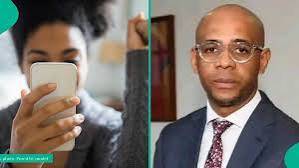Equatorial Guinea Restricts WhatsApp Usage Amid Controversial Media Circulation on Baltasar Engonga
The government of Equatorial Guinea recently implemented restrictive measures on WhatsApp media sharing, following a scandal involving images and videos linked to Baltasar Engonga Edjo, a prominent political figure. Engonga, who serves as a top official and advisor to the country's President, is allegedly involved in explicit content scandals, sparking intense online discourse and public scrutiny.
In response to the controversy, authorities have restricted WhatsApp media sharing, citing a need to prevent "disorder and misinformation" that could arise from the rapid spread of sensitive content. The move has, however, drawn criticism both domestically and internationally, with opponents viewing it as an attempt to stifle freedom of expression and suppress public conversation on government accountability.
The alleged 400 adult images and videos tied to Engonga surfaced on social media, particularly on WhatsApp, one of the country’s most popular messaging apps. As these circulated widely, debates erupted online about transparency, ethical conduct, and the role of political elites in the country. Given Equatorial Guinea’s stringent media environment, WhatsApp has been one of the few platforms where citizens freely exchange information, making this restriction particularly impactful.
This action from the government raises concerns about digital freedom and privacy. Many residents feel the restrictions are a disproportionate response to personal actions of an individual in office, leading to calls for greater scrutiny on how political figures conduct themselves both privately and publicly. Moreover, the restriction has affected not only personal users but also businesses and community groups that rely on WhatsApp for communication, further adding to frustrations.
Analysts suggest that this situation highlights the complex relationship between governance and digital platforms in Equatorial Guinea. The government’s handling of the incident reveals a tendency to use broad censorship measures as a means of damage control, which some see as counterproductive and an encroachment on civil liberties.
As Equatorial Guinea navigates the fallout from this scandal, observers are watching closely to see if further restrictions will follow. The case has already fueled discussions about reform, with critics arguing for a balanced approach that respects both personal privacy and the public's right to hold leaders accountable. The incident underscores the challenges authoritarian governments face in managing information flow in an increasingly digital and globally connected society.



No comments yet
Be the first to share your thoughts!